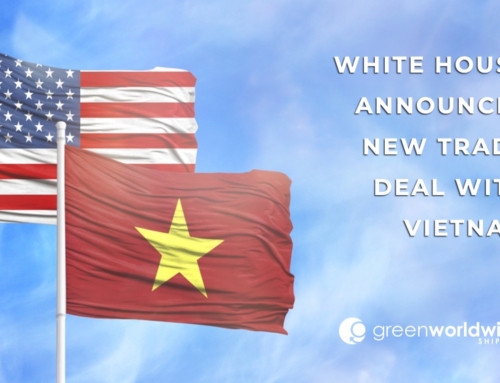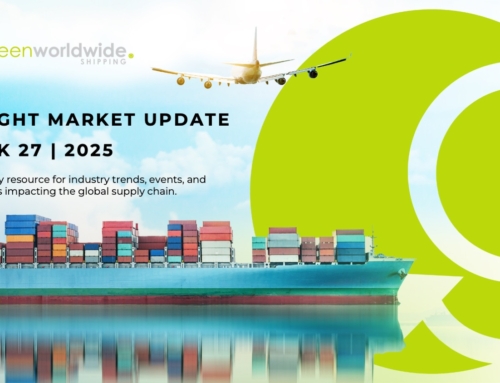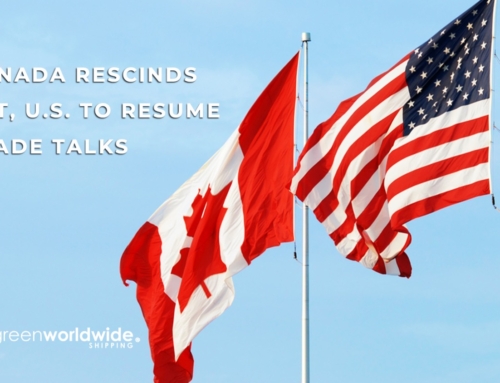STRENGTHENING GLOBAL TRADE
The Indo-Pacific Economic Framework for Prosperity (IPEF) Supply Chain Agreement, recently introduced by the U.S. Department of Commerce, is an important development in the world of global trade. This agreement emphasizes countries working together to make supply chains stronger and more resilient, while helping to boost economies.
The IPEF Supply Chain Agreement states that participating countries will collaborate to:
Enhance supply chain transparency and information sharing between the IPEF countries and the private sector consistent with each countries domestic law and policy, in order to promote risk awareness and identify bottlenecks and supply chain disruptions;
Encourage supply chain diversification through the use of multiple suppliers to promote resilience and inclusivity, foster interconnectedness, advance shared prosperity across and within the IPEF countries, and guard against vulnerability arising from global import concentrations;
Mobilize investments, encourage technical cooperation, and foster opportunities for the development of a skilled workforce, critical infrastructure, industrial capacities, and enhanced connectivity;
Raise awareness of the instrumental role that inclusive trade and investment policies play within supply chains and their contribution to sustainable economic growth;
Promote supply chains in which labor rights, as defined by the Agreement, are respected, and create market demand for sustainable and responsible sources of supply;
Raise awareness of potential supply shortages, supply chain bottlenecks and other similar risks to help safeguard against supply chain disruptions and their adverse secondary effects;
Cooperate to address logistical bottlenecks and vulnerabilities in the IPEF countries’ supply chains, including those that may arise in the context of land, air, and maritime and waterway transport, warehousing, port-related services, and infrastructure; and
Minimize market distortions, protect confidential business information, promote regulatory compliance, and respect market principles.
CRITICAL SECTORS & KEY GOODS
Senior government officials from IPEF partner nations will establish an IPEF Supply Chain Council with the responsibility of overseeing collaborative efforts to address supply chain challenges in the Indo-Pacific region. The Council’s primary focus will center on critical sectors and key goods vital not only for national security but also for public well-being, safety, and economic stability. This Council, scheduled for at least annual meetings, will actively facilitate cooperation among subject-matter experts, enabling them to assess supply chain capabilities, intricately map its operations, identify bottlenecks, and actively explore strategies to broaden the sources of supply for sectors and goods of shared significance.
“By working toward finalization of this monumental Agreement, the United States is taking an important step forward to fortify bonds with our partners throughout the Indo-Pacific. Working in lockstep, we will be prepared to best address our shared economic challenges together.”
Gina Raimondo
U.S. Secretary of Commerce
ADAPTATION & EXPANSION
The IPFE Supply Chain Agreement represents a collaborative undertaking involving multiple nations, including Australia, Fiji, India, Indonesia, Japan, South Korea, Malaysia, New Zealand, the Philippines, Singapore, Thailand, the U.S., and Vietnam. Once ratified by five of these countries, the agreement will come into force. This cooperative approach underscores a collective commitment to fortify global supply chains, benefiting all participating nations.
The agreement permits countries to withdraw after three years if circumstances warrant such a move. After five years, the participating nations will embark on a review process to consider enhancements and amendments that align with evolving economic landscapes. The agreement remains open to other countries that express interest in joining after the initial year which will extends its reach and influence.
BENEFITS FOR U.S. IMPORTERS
U.S. importers stand to gain substantially from the IPFE agreement as it encourages countries to adopt innovative supply chain mapping approaches, incorporating chain-of-custody protocols and the utilization of production- and logistics-related data. This concerted effort aims to enhance supply chain transparency from the inception of raw materials to the finalization of goods, potentially aiding importers in avoiding detentions tied to forced labor. It is important to recognize that these approaches are targeted at critical sectors and key goods, which may not encompass all import categories.
Stay up-to-date on freight news with Green’s Weekly Freight Market Update by following us on Facebook, Instagram, and LinkedIn. For continuous updates, make sure to check out our website at greenworldwide.com.






